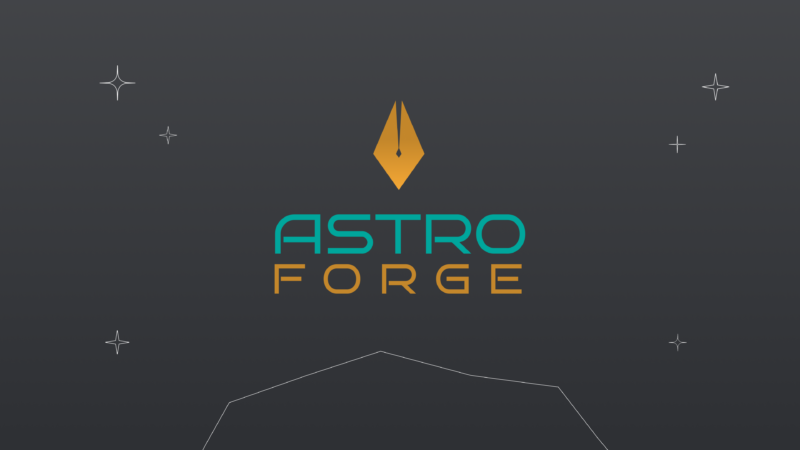Asteroid mining was all the rage nearly a decade ago. In 2012 several billionaire entrepreneurs founded a company called Planetary Resources with the goal of harvesting water from asteroids and selling it as propellant at in-space fuel depots. A year later, another group of investors founded Deep Space Industries to harvest rare metals from asteroids.
While it seemed like the era of space mining had dawned, these commercial efforts were soon eclipsed by a harsh reality—by 2019 both companies effectively no longer existed. Neither could overcome the significant obstacles of building spacecraft capable of traveling into deep space, let alone examining asteroids and mining them for materials. Beyond the technical challenges, each of these projects also required a huge outlay of funding ahead of any profit that lay years, if not decades, into the future.
Now, a new challenger, AstroForge, has entered the arena with the goal of mining platinum on asteroids and selling it on Earth. The founders of the company, Jose Acain and Matt Gialich, said in an interview they were well aware of the challenges of deep space mining when starting AstroForge earlier this year.
"When you say asteroid mining, people laugh at you," Gialich said. "They're like, 'OK, here's some crazy guys that did too many drugs and thought this would be a cool idea.' But the reality is that we can take this from the realm of science-fiction into the realm of something we can actually do."
Both NASA and the Japanese space agency, JAXA, have now successfully collected material from asteroids in deep space, he said. Of course, both did so at a much smaller scale, aiming to bring only small amounts of material back to Earth for scientific study. But the Hayabusa2 and OSIRIS-REx missions have demonstrated that gleaning material from an asteroid is technically feasible.
Gialich said AstroForge seeks to lower the price of these missions. And unlike its now-defunct predecessors, which were designing spacecraft that ultimately would have cost hundreds of millions or billions of dollars, AstroForge plans to use commercial space technology that already exists for its missions.
Starting with $13 million
Last week AstroForge announced that it had closed a $13 million round of "seed plus" funding, which was led by Initialized Capital, with investments from Seven Seven Six, EarthRise, Aera VC, Liquid 2, and Soma. The company presently has seven employees, and this will allow that number to double. AstroForge is planning a launch in January 2023 of a small satellite to perform a refining demonstration in low Earth orbit. After that, the company is planning two more missions into deep space, and this funding will provide the runway to carry AstroForge that far.
"We don't need that much capital," Gialich said. The company plans to design spacecraft small enough to fly as part of rideshare launches. "We're going after this by bringing along a very, very small spacecraft to mine asteroids. So our first return mission is not going to return trillions of dollars. It's not going to return billions of dollars. It's going to return tens of millions of dollars."
Platinum is currently priced at $31,000 a kilogram, so the company is likely talking about bringing hundreds of kilograms of platinum back to Earth, or less. To be clear, this is still an enormous leap—NASA's OSIRIS-Rex mission is believed to be returning about 1 kg of unrefined material from the surface of an asteroid at a mission cost of about $800 million.
To do this, the company plans to build and launch what Gialich characterized as a "small" spacecraft to a near-Earth asteroid to extract regolith, refine that material, and send it back toward Earth on a ballistic trajectory. It will then fly into Earth's atmosphere with a small heat shield and land beneath a parachute. The goal is to build each of these satellites at a recurring cost of significantly less than $10 million.
That seems pretty ambitious, but AstroForge already says it has identified a commercially available thruster, built by Miles Space, that runs on water propulsion for some of its missions.
Finally, there is the question of just how much platinum is available for harvesting on near-Earth asteroids. AstroForge has identified eight targets, but instead of studying the problem from a remote distance, the company believes the best option is simply to go and see. "Until we go we won't know," Gialich said. "There isn't a way of knowing right now, from Earth, exactly how much of each platinum group metal is on an asteroid."
Acain and Gialich, veterans of SpaceX and Virgin Orbit, respectively, readily acknowledge that what they're proposing is rather audacious. But they believe it is time for commercial companies to begin looking beyond low Earth orbit.
"I think space has become a little mundane and boring," Gialich said. "You know, everybody's starting a camera company looking at the Earth, or a launch vehicle company. And really, SpaceX is the only company that you even see people light up about. We really want to inspire a younger generation than us to kind of dream bigger, and push outside the envelope."



3175x175(CURRENT).thumb.jpg.b05acc060982b36f5891ba728e6d953c.jpg)

Recommended Comments
There are no comments to display.
Join the conversation
You can post now and register later. If you have an account, sign in now to post with your account.
Note: Your post will require moderator approval before it will be visible.